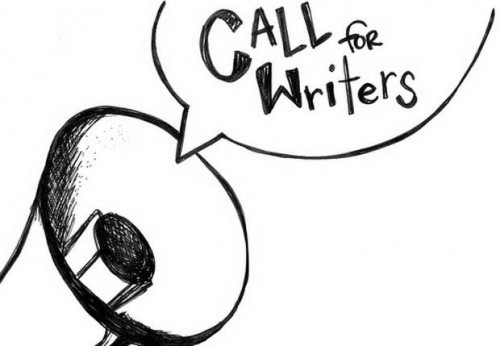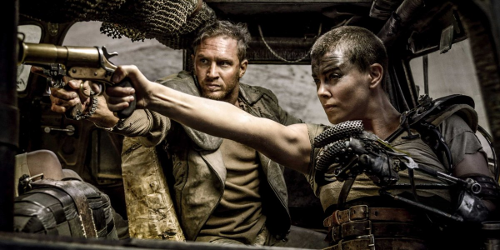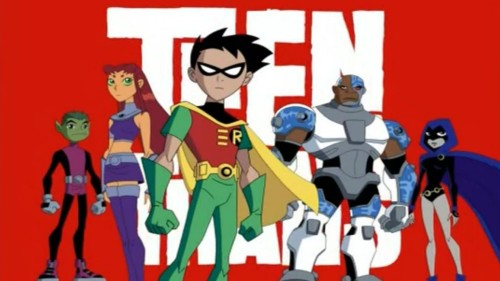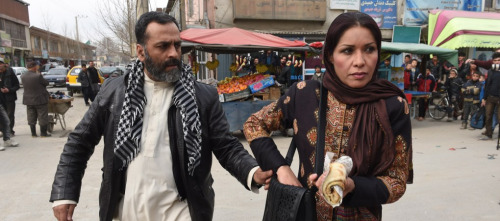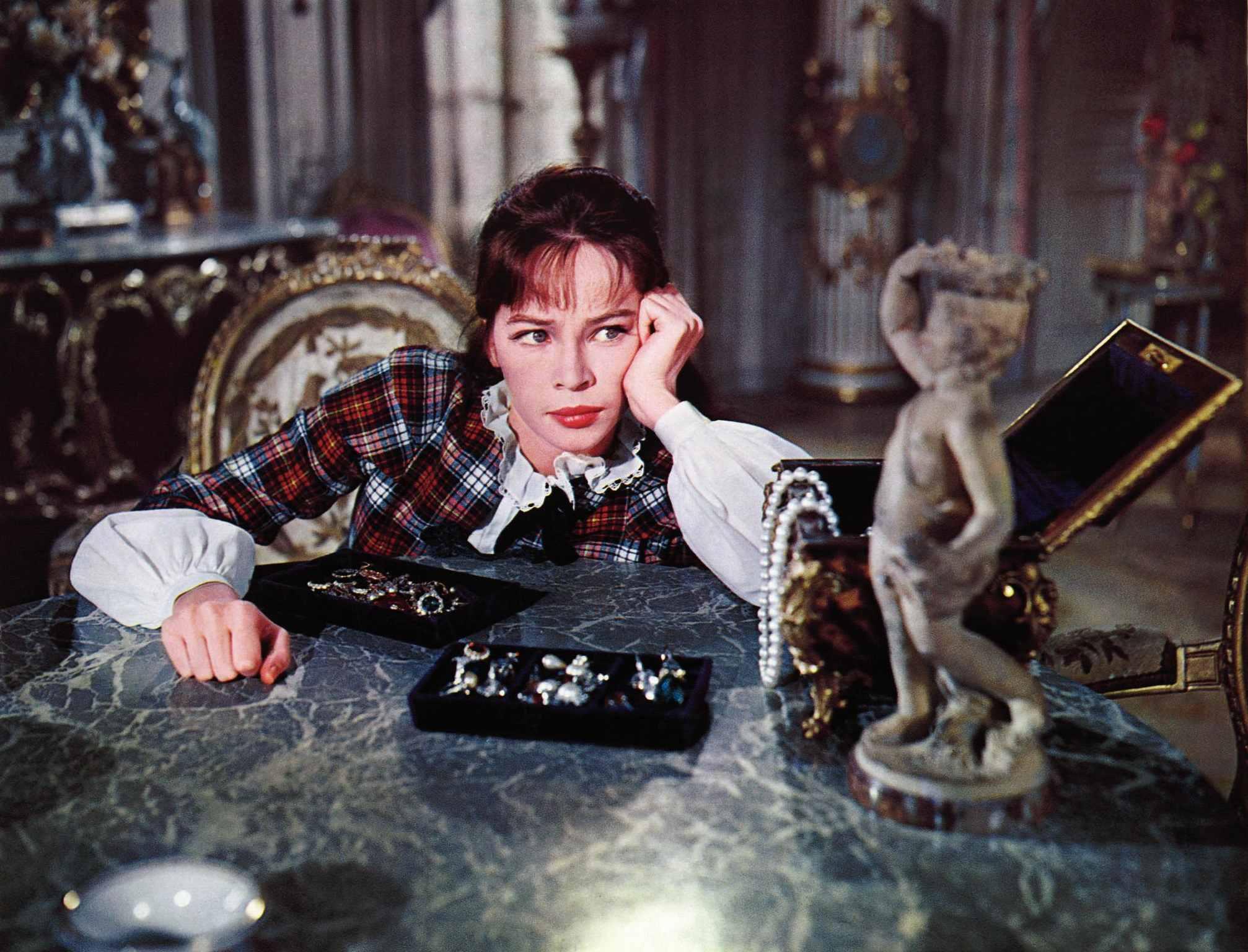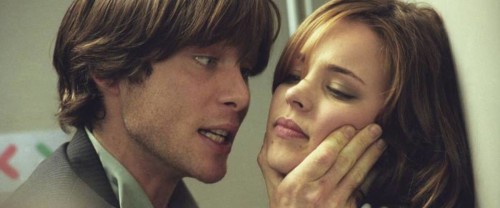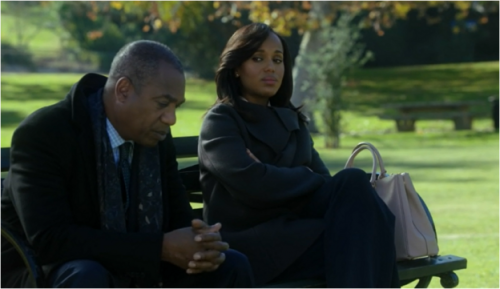This guest post by Aaron Radney appears as part of our theme week on Masculinity.
To call Avatar: The Last Airbender (ATLA) one of the best shows in recent memory isn’t a controversial statement. It’s been lauded, and rightly so, for its varied female cast, but that nuanced treatment of heroic depictions isn’t limited to the women of the show.
It’s a generally understood in feminism that forced adherence to gender roles can hurt men as much as women with what we’d call traditional masculinity being celebrated to the detriment of other gender expressions. As a coming of age story I felt the young men in the show–Aang, Sokka, and Zuko–all demonstrated the struggle young men face journeying into manhood with Uncle Iroh providing a vision of what the end of that road might look like. All of them, even those that have more traditional male expressions than the others, end up rejecting more toxic expressions of masculinity.
As is typical with these sorts of things, spoilers of all types going forward.
Starting with Aang we have what I think could be the least stereotypical male lead I’ve ever seen in action fiction. Not the bumbling everyman hero, the sarcastic anti-hero or the brooding master, Aang is a guile hero with more in common with Bugs Bunny than Superman or James Bond, with a balance of competence and sensitivity. Then there’s his elemental bending. The four bending elements always seemed obviously gender coded to me with air and water being based on “soft” martial arts styles build more on evasion and redirection, and fire and earth being built on “hard” styles and as such more aggressive, direct and forceful. Far from playing these tropes straight, ATLA stands them on their head with a male hero using one of the two feminine elements. This doesn’t seem to me a fluke either as an episode late in the series, “The Ember Island Players” has Aang played in a stage performance by a woman both as a joke on typical voice casting but also in seeming acknowledgement of those aspects of his personality.
Rather than compensating for his element with extreme aggression as one might see in another show, Aang is the least aggressive member of his group. This is a kid who’d rather talk than fight, doesn’t enjoy combat when he has to do it, and prefers to evade and defend and trick rather than use brute force. Instead of a righteous chosen one or someone who identifies as a warrior, Aang’s primary expression is that of a pacifist monk and the narrative never tries to make him anything else. In fact, anytime he tries to ignore his emotions in favor of the cold reason and detachment we’d expect of someone in his role, the story actively rebuffs him for it. It’s not true to who he is.
Furthermore, many of Aang’s greatest moments come not through physical prowess but through doing what he can to help others. He even demonstrates that men can, and should, be advocates for women’s equality when he stands up to the sexist Master Pakku, who refuses to train Katara. Even going so far as to use his privilege as the Avatar to attempt to sway Pakku’s mind.
Not only does Aang have no problem training side by side with a woman, but he is later trained by that same woman when she surpasses his skills (and again has no problem being trained by another woman later in the narrative’s run). Never do we see him bothered by this or feel diminished by it. Aang’s far too secure in who he is as a person for anyone else’s success to bother him.
Sokka’s gender expression is a bit more conventional but his arc hits some of the same themes. Overtly sexist in a way he’s checked on more than once his macho streak reeks of a young boy trying too hard to be what he thinks a warrior and man of his tribe is supposed to be. His bravado in the face of the Fire Nation threat plays out like a typical wish fulfillment fantasy of a little boy desirous of glory in battle but in his first encounter with the antagonist Zuko he’s trounced almost comically. The show clearly demonstrates that direct physical prowess is not Sokka’s path.
Over time however, Sokka confronts his insecurities and matures into the team’s idea guy. He becomes a potent strategist and realizes his lack of formidable physique (he’s got a body type that, like the other young men on the show is not unreasonable for someone his age who engages in regular activity but it’s not the masculine ideal we’re used to seeing) and lack of bending skills does not preclude him from being both beneficial to the team and to others. He’s no less brave and no less noble than his friends and far from being the stoic analytic or cringing braniac we envision with a male in this role; Sokka embodies the goofy charmer. He’s the class clown who nevertheless gets straight A’s. He’s never made fun of for not conforming to what you’d expect in a show of this type.
If Aang and Sokka demonstrate a non-traditional masculinity through growing up, I don’t think it’s unreasonable to say that Zuko and Uncle Iroh demonstrate the idea of shaking off patriarchal constraints. Both are of the Fire Nation, which is based heavily on imperialist Japan, is highly paternalistic and builds its masculine identity on ideas of domination and honor gained by conquest. Probably the most visible expression of this is the ritual duel of Fire Nation culture known as the Agni Kai. Iroh, however, gives us a vision of a different path of the Fire Nation male and how this expression is regarded, that is to say, not all that well.
Seen as a bit of an eccentric Iroh lost the throne to his more aggressive and conniving brother. Meanwhile, we discover that Iroh is probably one of the most decent people in the entire show. Though demonstrably able to respond to violence in kind being a former general in the Fire Nation army and originally the crown prince, Iroh, much like Aang, prefers to talk and avoid trouble when he can. Like Aang many of Iroh’s most memorable moments stem not from his physicality, but his empathy. Perhaps the most famous instance is one in which he disarms a would-be mugger easily, but rather than that being the end of it, or him punishing said mugger for the attempt, he first gives him pointers on proper stance when using a knife, and then proceeds to sit with him and show him kindness, encouraging him to pursue his dream of becoming a masseur. This is not a one-off for Iroh. He is calm rather than stoic and exemplifies a maturity that seeks to empathize and assist people when and how he can.
Iroh’s nephew Zuko on the other hand begins as an antagonist determined to capture the Avatar to reclaim his honor. His brooding, anger, and attempts at stoicism make him the most stereotypically masculine teenage boy on the show. Over time, we learn that his father banished him both for showing compassion about a group of soldiers that would have been sacrificed in a military action AND for refusing to fight his father in an Agni Kai. It’s noted that Zuko’s unwillingness to fight his own father was seen as a sign of weakness. The Fire Lord, his father, and the literal patriarch of his family and his nation, burns Zuko’s face and he carries the scar throughout the show. One could say without irony he was literally scarred by the patriarchy and we see that Zuko’s rage and bravado is at odds with the compassion and empathy he exhibits in the flashback.
For two seasons Zuko pursues the Avatar to win his father’s approval. His adherence to the Fire Nation’s belief of fire’s power coming from rage keeps him in a constant state of hostility and his pride explicitly keeps him from bending lightning, a skill that he’s told requires absolute control of his emotions and one at which his sister excels. All through this, his Uncle is by his side attempting to show him a better way and encouraging him to set aside his anger and frustration.
Iroh even teaches him a technique for lightning redirection, a move he created by studying water benders and explains to his nephew that studying other elements and other cultures can help him become stronger. The show, subtly or not, through Zuko demonstrates the expectations under which he’s been placed holding him back.
Later, while living their lives as fugitives in another nation, Zuko begins to grow emotionally. No longer constantly hunting the Avatar we see him protect a village from bullying bandits, provide joy to a young woman in a town he’s staying in by lighting the candles of a town square with his fire bending and helping his uncle in a tea shop. Zuko begins to relearn the joy found in helping others.
However, in one of the most lauded fake-outs of the show, Zuko is seduced back to the dark side at the end of season 2 and when it looks as though he’s killed the Avatar he’s welcomed back into his father’s good graces but betrays his Uncle. At this point, Zuko has everything he ever wanted and yet his shame is too great and he doesn’t’ have the emotional tools to deal with it. This realization is plain and stark when he says, “I’m angry and I don’t know why.” It’s not long after this that Zuko has a change of heart.
He storms into his father’s chamber and renounces his father and the Fire Nation’s warlike ways. He proclaims the only way his nation’s honor will be restored is if they embrace a path of love and peace and that he will be leaving to join the Avatar. His father takes this about as well as you’d expect and launches a powerful blast of lightning at his own son.
Zuko responds with the lightning redirection technique he learned in the previous season and the weight of the moment is palpable. He embraces his Uncle’s path of peace, expresses his desire to help the Avatar, and when met with full masculine coded killing force, draws on a technique derived from the principles one of the two female coded elements to protect himself and redirects the aggression, rather than meeting it head on. In that moment he affirms that his father’s power over him is gone, and quietly demonstrates for boys that which is masculine and that which is feminine can coexist and strength can come from this.
All of this comes to a head in the show’s finale and as the primary foils I think it’s only right Aang and Zuko’s final acts parallel each other. Zuko battles his sister and Aang Zuko’s father, the Fire Lord. Previously, many of Aang’s closest friends, including Zuko, tell him that to save the world, the Fire Lord has to die. Aang is convinced there has to be a better way. He refuses to abandon the teachings of the monks who raised him. On a meta level, Aang’s killing of the Fire Lord would have done little good. Having been at war for 100 years, the world didn’t need more killing but rather a third option. In a distinct subversion of the “A real man is a killer” trope Aang eliminates the threat by removing his enemy’s bending rather than ending his life. It is in this moment that Aang can be said to become a man in the form of a fully realized Avatar. Even the domination aspect is rebuked. Aang doesn’t dominate the Fire Lord in their final battle of wills that is Energy Bending. Instead Aang’s own spirit proves indomitable. Aang succeeds because he refuses to be taken over himself and that distinction is an important one. The act that defines Aang as an adult and shows the kind of man he has become is not one of taking the life of another being, but remaining true to his own principles. The final moment we see for Aang where he ends the Fire Nation’s final act of destruction with a single waterbending move–an act of healing and putting out the fire of war.
Similarly, Zuko’s final act against his sister is not one of destruction but one of protection. He nearly sacrifices himself to protect Katara from a lightning attack by his sister. Zuko attempts to perform lightning redirection but isn’t grounded properly. This wasn’t a matter of saving the damsel but rather him recognizing he had a specific skill he could use to protect a friend. Another show would have had that be a moment of triumph for Zuko where he performed the move perfectly. Instead Zuko’s failure here becomes important because it wasn’t due to any inadequacy, but rather the complexities of the situation. To me, it felt like an acknowledgement that to be a man doesn’t mean one must be perfect.
I’m not entirely sure how much of this is intentional and how much is just the result of good storytelling, but ATLA manages to say great things about a type of masculinity you don’t always get to see. One that says there’s no singular way to be male and taken seriously. It doesn’t make the mistake of playing certain male archetypes for laughs or build its idea of what it means for these boys to grow into manhood on the domination of others, but rather stresses the need for empathy, constant personal growth and security in one’s own identity, and using our abilities to help others, rather than for abuse and subjugation.
Aaron Radney is an aspiring illustrator who attended Memphis College of Art and lives in St. Louis, Missouri. Though he spent far too long fighting against the impulse to let his race and his feminism impact his work, he’s slowly beginning to more actively embrace both looks forward to doing more writing and art on both subjects. His work can be found on his website http://aaronradney.com or on his Facebook page here.














